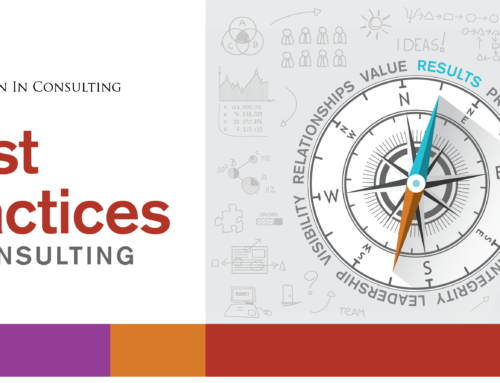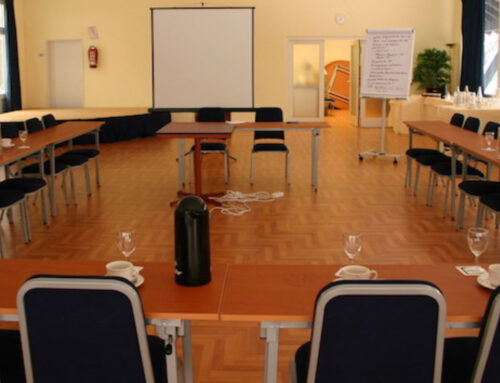As I mentioned in my October 17 post (Secrets to a Successful Consulting Business: Know Your Strengths), I followed Elaine Starling’s suggestion and ordered StrengthFinder 2.0. I did so, because 1) I thought it would be interesting; 2) Kim Fulcher said the first step in finding your passion is knowing your strengths; and 3) I think a consultant’s success depends on knowing — and playing to — your strengths.
Taking the StrengthFinder 2.0 Test
Well, book in hand, I entered my secret code and took the StrengthFinder 2.0 assessment (it took me about 35 minutes, just like they said). It was an interesting test. If forces you to choose between two different concepts or beliefs; and you only have 20 seconds to make a decision.
Sometimes I chose “neutral” because I was neither; and sometimes I choose it because I honestly couldn’t decide which one was more “me.” Most of the time, though, I could choose one or the other-even though often a little bit of the alternate choice still resonated with me. The interesting part is being forced to choose quickly, as it doesn’t really allow time for analysis. You simply have to go with your gut.
At the end, the website displays what your five themes, ranked in the order revealed by your responses. Taking the test is only the first step. There are guides and other tools to walk you through what to do next. As I experience each component, I’ll share my findings/opinions.
Results of the StrengthFinder 2.0 Test
For those of you who know me, you might find it interesting to read what my themes are, so I’ll paste them here. Do they fit me? Will my fellow consultants and my clients and my friends see different connections between me and these themes? The former communication major in me just eats this stuff up. Meanwhile, I’ll use this information and the other tools to further strengthen my consulting business and find my passion.
Relator describes your attitude toward your relationships. In simple terms, the Relator theme pulls you toward people you already know. You do not necessarily shy away from meeting new people-in fact, you may have other themes that cause you to enjoy the thrill of turning strangers into friends-but you do derive a great deal of pleasure and strength from being around your close friends. You are comfortable with intimacy. Once the initial connection has been made, you deliberately encourage a deepening of the relationship. You want to understand their feelings, their goals, their fears, and their dreams; and you want them to understand yours. You know that this kind of closeness implies a certain amount of risk-you might be taken advantage of-but you are willing to accept that risk. For you a relationship has value only if it is genuine. And the only way to know that is to entrust yourself to the other person. The more you share with each other, the more you risk together. The more you risk together, the more each of you proves your caring is genuine. These are your steps toward real friendship, and you take them willingly.
Developer: you see the potential in others. Very often, in fact, potential is all you see. In your view no individual is fully formed. On the contrary, each individual is a work in progress, alive with possibilities. And you are drawn toward people for this very reason. When you interact with others, your goal is to help them experience success. You look for ways to challenge them. You devise interesting experiences that can stretch them and help them grow. And all the while you are on the lookout for the signs of growth-a new behavior learned or modified, a slight improvement in a skill, a glimpse of excellence or of “flow” where previously there were only halting steps. For you these small increments-invisible to some-are clear signs of potential being realized. These signs of growth in others are your fuel. They bring you strength and satisfaction. Over time many will seek you out for help and encouragement because on some level they know that your helpfulness is both genuine and fulfilling to you.
The Strategic theme enables you to sort through the clutter and find the best route. It is not a skill that can be taught. It is a distinct way of thinking, a special perspective on the world at large. This perspective allows you to see patterns where others simply see complexity. Mindful of these patterns, you play out alternative scenarios, always asking, “What if this happened? Okay, well what if this happened?” This recurring question helps you see around the next corner. There you can evaluate accurately the potential obstacles. Guided by where you see each path leading, you start to make selections. You discard the paths that lead nowhere. You discard the paths that lead straight into resistance. You discard the paths that lead into a fog of confusion. You cull and make selections until you arrive at the chosen path-your strategy. Armed with your strategy, you strike forward. This is your Strategic theme at work: “What if?” Select. Strike.
Your Responsibility theme forces you to take psychological ownership for anything you commit to, and whether large or small, you feel emotionally bound to follow it through to completion. Your good name depends on it. If for some reason you cannot deliver, you automatically start to look for ways to make it up to the other person. Apologies are not enough. Excuses and rationalizations are totally unacceptable. You will not quite be able to live with yourself until you have made restitution. This conscientiousness, this near obsession for doing things right, and your impeccable ethics, combine to create your reputation: utterly dependable. When assigning new responsibilities, people will look to you first because they know it will get done. When people come to you for help-and they soon will-you must be selective. Your willingness to volunteer may sometimes lead you to take on more than you should.
Empathy: you can sense the emotions of those around you. You can feel what they are feeling as though their feelings are your own. Intuitively, you are able to see the world through their eyes and share their perspective. You do not necessarily agree with each person’s perspective. You do not necessarily feel pity for each person’s predicament-this would be sympathy, not Empathy. You do not necessarily condone the choices each person makes, but you do understand. This instinctive ability to understand is powerful. You hear the unvoiced questions. You anticipate the need. Where others grapple for words, you seem to find the right words and the right tone. You help people find the right phrases to express their feelings-to themselves as well as to others. You help them give voice to their emotional life. For all these reasons other people are drawn to you.









Avery,
You sound startling like how I imagine myself to be!
Did you find this a useful exercise that was worth the book purchase? I see there are mixed reviews on Amazon. Just curious how you are taking what you learned and implementing actions. I must admit I can never resist a test giving insight into my personality and/or strengths.
Thanks for sharing this and great blog. Just discovered it.
Suzanne
Skyvara Communications
Hi Suzanne,
Sorry for the delay in replying! It has been ONE crazy week!
So far, I’ve found the exercise interesting, but like you, I find these types of tests interesting. It might be the communication major in me though, as I love understanding what makes people tick and how it impacts their communication with others.
The difference with this test, though, is the timed component. You have about 20 seconds to decide which of the two choices best fits you and how much. Just about every time I take a test of this type, I find it hard to make that choice for a number of the questions. So to be forced to act quickly 1) compels you to go by your gut, and 2) may result in a different outcome if you were to take it again. In other words, on those questions where I was on the fence, would I choose the same answer again, given the same 20-second timeframe? Maybe, maybe not.
That said, I’ve only taken the first step—the test—and reviewed my five themes. I also asked a very good friend of mine (who works in HR) what she thought of my results and if she had taken the test. She thought mine were spot on and sent me hers. Funny thing is, I saw a lot of me in some of her five themes when I read them (probably because I was on the fence for so many answers—call it a quirk in my nature, I am a Libra after all) ;-).
I expect to move to the next steps over the next couple of months. Since I’m not really planning a career change, I’ll be looking at how I can use this newly acquired information to improve my consulting business, and equally (if not more) important, improve my enjoyment of what I do.
I truly like what I do; that’s not the issue. But it doesn’t quite feed my soul in the way my first passion—teaching—does. So how can I tap into this knowledge to make this more the case. What can I do differently? The book offers ideas, and if I combine them with Kim Fulcher’s advice (find your passion by identifying your strengths, values, and skills), I have faith that the book will prove useful. If not, it will still have been an interesting and insightful exercise.
Oh, and I’m glad that you like the blog. It’s in its infancy, so if there are things you’d like to see us cover, let us know.
Avery 🙂
AVE Consulting
Great post. Hope to read a lot more good posts in the future.